Fashion + Design > Fashion
October 2, 2019
Fiori Zafeiropoulou: Nachhaltige und faire Mode in Griechenland hat einen Namen
Susanne Barta
Gefunden habe ich Fiori über Internetrecherche. Da ich meinen Urlaub heuer wieder in Griechenland verbrachte und einen Tag auch in Athen war, suchte ich nach jemandem, die oder der mich über die Situation von nachhaltiger und fairer Mode in Griechenland informieren konnte. Wie sich zeigte, führten alle Wege zu Fiori. Als ich ihre Email-Signatur sah, war ich beeindruckt. Seht selbst: Dr Fiori A Zafeiropoulou Cand.Post Doc, PhD SocEnt, MBA, BSc(Ec); Advisor on Prevention of Trafficking in Human Beings in Supply Chains; Pilot Leader Prevention of Trafficking Public Procurement & Private Supply Chains, City of Athens; Founder & CEO SOFFA – Social Fashion Factory; Country Coordinator Fashion Revolution Greece NGO; Visiting Lecturer International MBA, Athens University of Economics & Business.
Ihre Arbeit in Bezug auf Menschenhandel und Ausbeutung in der Textilindustrie hat mich besonders interessiert, da man kaum jemanden trifft, der sich hier wirklich auskennt. Die Situation ist wenig erfreulich. Auch mitten in Athen hat Fiori „Sweatshops“ mit minderjährigen Flüchtlingen gefunden. Sie hat das einer Journalistin erzählt, aber die hat ihr anfangs nicht geglaubt. Die folgenden Recherchen der Zeitung haben das, was Fiori vorgefunden hat, noch bei weitem übertroffen. Fiori und ihr kleines Team arbeiten bei SOFFA mit Flüchtlingen und Frauen, die Opfer von Menschenhandel waren, sie bilden die Flüchtlinge aus und produzieren gemeinsam handgefertigte Produkte aus natürlichen und nachhaltigen Materialien. Ziel ist, dass die Frauen einmal selbst nachhaltige Fashion-Entrepreneure werden. Das Geld, das Fiori mit ihrer akademischen Arbeit verdient, steckt sie in ihre sozialen Projekte.
Unser Interview haben wir auf Englisch geführt.
What role does sustainable fashion play in Greece?
A study by the University of Thessaloniki in 2014 showed that not only did people not care about sustainability but they haven’t even thought about it. And to be honest, when I returned to Greece in 2013 to set up a Social Cooperative Factory, I didn’t know very much about the negative impact of the fashion industry myself. Back then I remember a girl mentioning Fashion Revolution and was immediately interested. Fashion Revolution is a global movement that believes in a fashion industry that values people, the environment, creativity and profit in equal measure. So with this new Social Cooperative I wanted to focus and act on these issues and raise awareness for the concept of Fashion Revolution. We had to start from the beginning. Nowadays the message of Fashion Revolution is widely heard in Greece and the impact of fashion on the environment and the social impact with reference to human trafficking a lot better understood.
How important is the Textile industry in Greece?
It used to be very strong. We produced 85% of European cotton. But nowadays there is a decrease in exports and simultaneously an increase of imports, mainly from countries where production costs are a lot lower. The quality of Greek cotton is one of the best and most sustainable worldwide. I don’t use the term organic cotton, because the production of organic cotton very often involves human trafficking. I speak of sustainable clean cotton, which means no GMOs, produced fairly, with less water and chemicals. We researched this a lot, tried to identify the mills, the spinners, the grinders, the weavers. In Greece we are also lagging behind in technology so we source a lot of sustainable textiles from Italy. In Greece we don’t produce organic cotton, but we have Greek clean cotton. What we are doing now is exporting 97% of our cotton and then import it again as textiles. But things are changing.
You founded SOFFA. Tell us more about this Social Fashion Factory.
SOFFA is a cooperative, 60% of our shareholders are refugees. When I came back to Greece to found a social factory my dream at first was to revive my father’s industry. It was the biggest sports footwear industry in the Balkans and closed in the 90ies. Then I found out about Fashion Revolution and wanted to address the aspect of human trafficking. People who work at SOFFA had to be victims of human trafficking. And then the refugee crisis started and we expanded our concept. We provide training, soft skills development for work inclusion and work integration empowerment. So we help the women to become self-reliant and to use their own resources. We work with environmentally friendly processes and sustainable textiles. Until now we haven’t been supported by public funding.
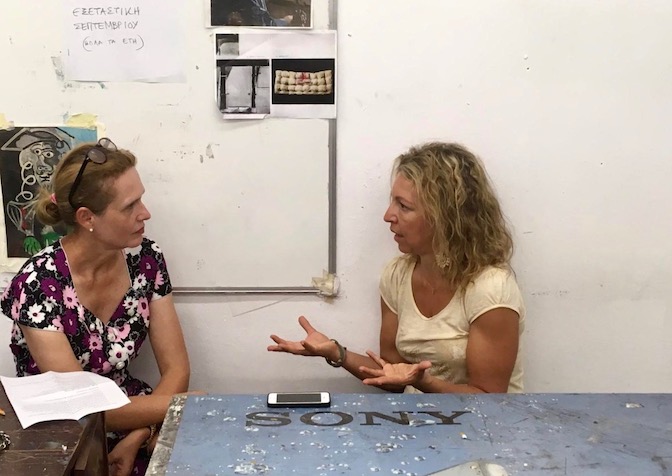
How serious is the problem of human trafficking and exploitation in the fashion business?
Human trafficking affects about 40,5 million people globally and 16 million of them are employed in the global fashion business supply chain. About 70 million people work in the fashion industry, 80% of them are women. I did a study in Greece to identify the level of trafficking and started going to factories and workplaces also in downtown Athens. I found people, also children, that were exploited. I shared this with a journalist but she didn’t believe me at the beginning. A couple of month later she told me that it is much worse than I told her. The owner of one factory was a woman, that was very hard for me to take in. Greece was on the 5th ranking in human trafficking in 2016 according to the Global Slavery index. In 2018 we rose to number two in Europe.
Do you think that the fashion industry is changing fast enough?
What I can say is that it is changing. There is a 13% increase of sustainable fashion in terms of consumption. In February I was in Paris at the OECD Forum on “Due Diligence in the Garment and Footwear Sector”. A lot of big labels were there and many new projects are evolving. I think sustainable and fair fashion will be the norm in the future.
I talked to some people in Greece about second hand and found out that the concept is not very popular here…
Second hand is growing on an international scale. Here in Greece we are not very familiar with it. We try to set up a rental platform, it’s not easy. It will come but it takes some time. The sustainable fashion community is growing in Greece. More and more designers are joining. A lot of them approach me and ask questions like where can I find materials etc. There is still a lack of education but this will change fast. Through Fashion Revolution we have created global working teams, we network and build platforms and share the knowledge. The millennials are a lot more interested than the previous generation to opt for sustainable brands, the generation Z even more. The new generations will drive this change.
Mehr über die Aktivitäten von Fashion Revolution und SOFFA findet ihr über die entsprechenden Links. Und hier noch ein paar Tipps für euren nächsten Griechenland-Besuch: 3Quarters betreibt ein kleines Geschäft, das auch Werkstatt ist, im Zentrum Athens und macht aus alten Markisen wirklich flotte Taschen, théla entwirft verschiedenste Produkte aus weggeworfenen Plastiksäcken, schaut auch mal rein bei Vathos Apparel, interessant auch Website und Blog des griechischen Fashion Editors und Stylisten Dimitris Grammaticoyiannis.
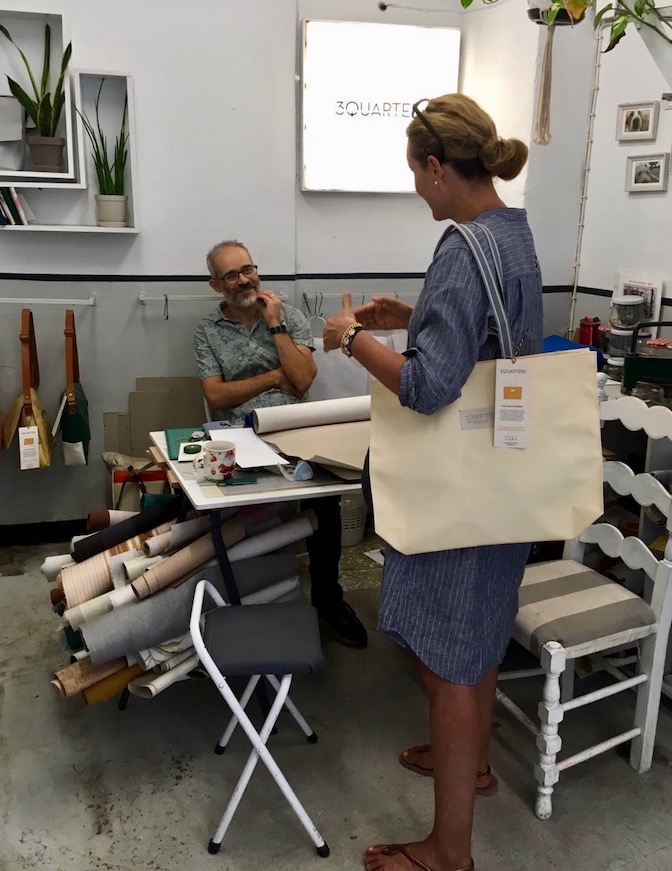
Fotos:
(1) Auf der Akropolis: Leggings > Stella Mc Cartney x Adidas; T-Shirt > Re-bello
(2) Fiori und Susanne beim Interview @ Yellow Days Festival in Athen: Kleid > Secondhand, Kleopatra, Bozen
(3) Mit Giannis von 3Quarters: Leinenkleid > Muji; Tasche > 3Quarters

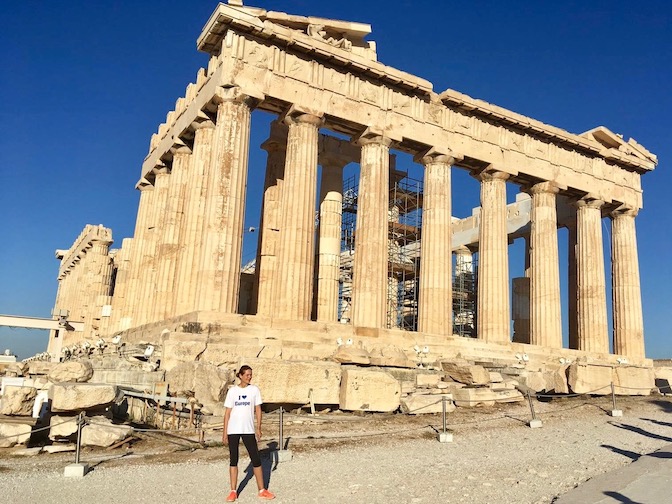


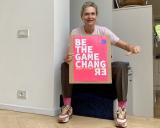






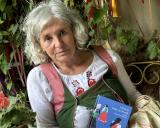
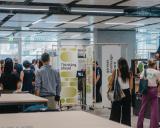




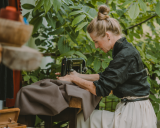
Comments